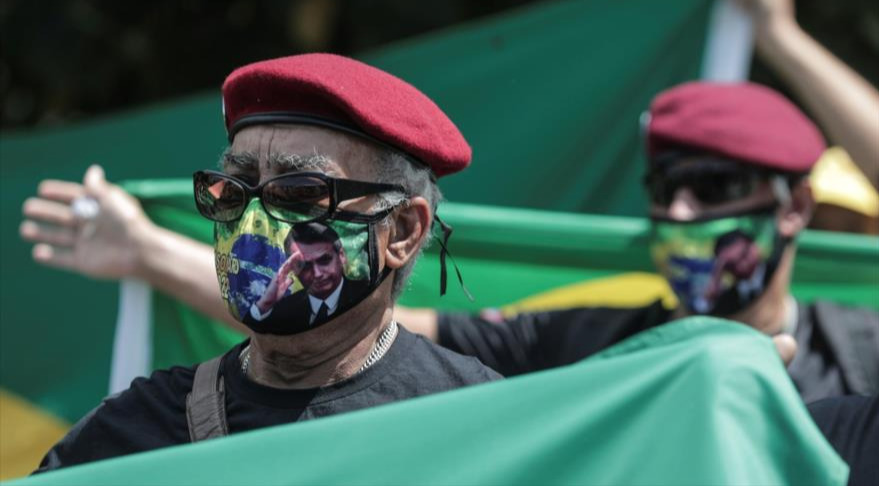
Two members of a paramilitary group that supports the Brazilian governor
Buenos Aires, May 4 (RHC)-- Ultra-right-wing militias and supporters of Brazilian ruler Jair Bolsonaro are uniting against restrictions imposed by the pandemic. Although Brazil has become the third country in the world most affected by COVID-19, given Bolsonaro's mismanagement, his supporters in Rio de Janeiro took to the streets on May 1st expressing their support for him and to ask for military intervention by the Armed Forces.
According to an article published on Monday by the Argentinean newspaper Página 12, now "Brazil is an explosive cocktail, although not only because of its lack of sanitary control" in the face of the virus, which so far, according to official data, has claimed the lives of 408,829 people in the South American giant.
In fact, in addition to the health crisis, Brazil is experiencing another scenario, which is the growth of ultra-right-wing militias in tune with the ideology of the head of state, whose comments on the measures to combat HIV/AIDS have dragged the country to a "negationist precipice", causing "incalculable damage" to the health sector and the country's economy, among other problems.
The newspaper cites recent research entitled 'The expansion of militias in Rio de Janeiro', which was conducted by the Study Group of New Illegalities (GENI) of the Federal Fluminense University and the Metropolis Observatory of the Federal University of Rio de Janeiro.
"Throughout the last decades, the armed power of the so-called 'militias' over territories, populations and markets has been expanding in the city of Rio de Janeiro and metropolitan area," reads the study, originially published last January.
What is surprising is that the assassin who killed councilwoman and activist Marielle Franco on March 14, 2018 is among these forces that are nourished by ex-cops, firefighters, NCOs of the armed forces, lumpens for all services and even dealers.
At that time, a report revealed the certain linkage of Bolsonaro with crime; however, the president angrily denied back in 2019 and the bogged down investigation of the crime did not allow progress on his political ties.
"The ambiguous relationship between the militias and the state seems to be related to the ability of these groups to multiply and expand their influence, occupying ever larger territories and electing more and more representatives of their interests to important political positions," the report points out.
The leaders of the strike assured that, despite the withdrawal of the tax reform bill, the protests will continue against militarization. | Photo: EFE

